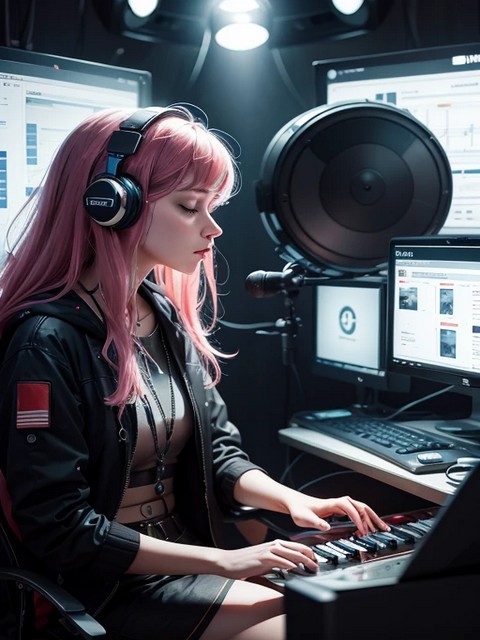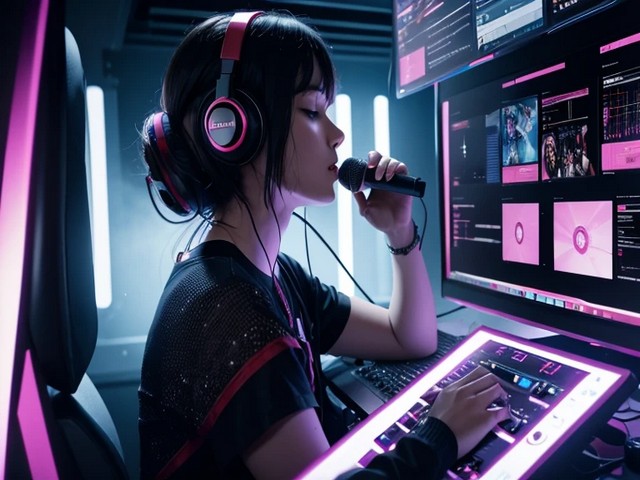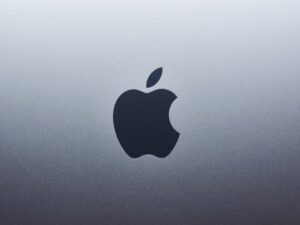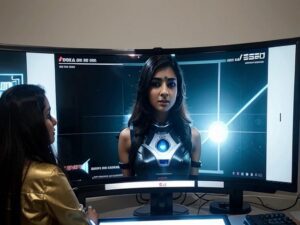
The creation of AI music causes a revolution in the music niche, which entails both enthusiasm and hostility. It is apparent that with the advancement in artificial intelligence technology, it has become useful in the generation of music hence leading to the aspect of copyright of AI music and the subsequent cases that stem from this issue. This blog focuses on discussing the topic of how the use of AI in producing music makes discussions in US court cases and what it means to musicians, producers, and the whole industry.
AI Music Sparks Innovation and Controversy
AI music introduces creativity through different approaches that were not imaginable before. AI can assist musicians and producers in generating new music these days, paving the way to a vast range of possibilities of what is technically possible. But this innovation is accompanied by the debate about who owns the AI art and whether the original creators or the AI programs have the right to the pieces created.
The Complexity of AI Music Copyright
Its identification regarding the copyright of AI music is not a simple matter. conventionally, copyright law applies to human-created work, but the case with the given AI-generated music. Questions that pertain to the legal nature and ownership of products, such as the owner of the copyright, the programmer, the user, or the AI. These are some of the difficult questions that are being posed to US courts and hence operating in new legal terrain.
AI Music Legal Battles in US Courts
It has to be noted that the integration of AI into music created a line of legal controversies in American courts. These legal cases mainly are associated with the conflict on the definition of authorship and copyright. Over the last few years, several examples can be referred to that proved that copyright laws are inadequate for regulating the use of AI in generating content, and fathomless legislations are needed here.
Brief History of AI in the Music Industry
AI music provokes a revolution that has been gradually changing the sphere of the music industry over the years. The travel started, however, during the 1950s when pioneers of computer science and music started developing the concept of algorithms in music. Finally, towards the 1980s, there were programs such as EMI (Experiments in Musical Intelligence) that were capable of learning the music styles of famous composers and imitating these musical styles.
This early work can be seen as the basis of today’s advanced systems that are used in AI. The developments in the application of AI for music were evident in the 21st century to some extent mainly in the creation, production, and selling of music. Sony CSL Research Laboratory and Google’s Magenta to the extent of starting to create AIs that will be able to write music from a blank sheet fully.
With this period, machine learning approaches became part of the framework of AI raising the ability to output musical pieces of advanced level of sophistication and reflective of human subjugated emotion. Over the last few years, the growth and usage of AI music production platforms and tools have given way to numerous advancements. Self-generated music from the programs is now being employed in movies, video games as well as commercial advertisements.
But this kind of fast growth has also led to a new round of legal disputes, especially in AI music copyright. It is only natural then that with the advancement of AI music generation, the occurrence of AI music legal cases. People in the creative field of music and those specializing in law continue to wonder about ownership of music. With the advancement of AI, deciding who owns a particular composition that has been generated by AI is almost a herculean task.
Some postulate that the owner of the AI system, the entity or the individual that developed it should own the rights while some posit that the AI itself as an independent creator has a right. Thus, evolving from these conflicts US courts are starting to tackle such questions. Now, society and the laws are challenged and changing in pace with the developing technologies. The verdicts of such cases may determine tendencies that will further shape the nature of AI music copyright as well as the general creative field.
Therefore, AI music brings creativity and conflict, but that is not surprising when it comes to arts and creativity. However, due to the evolution of copyrights through the integration of AI in Music, it is essential to analyze the new age of disputes in the US court system. It is in these conflicts that these directions will determine the future of music creation, distribution, and ownership so that both human input and AI are given due right and credited.
How AI is Changing Music Creation
AI changes the very modality of creating music; track making, and it influences even the way it is shared. However, these advancements have their own set of problems especially with the respect to the protection of copyrights.
AI Music Sparks New Opportunities
Technology especially through AI provides musicians with capabilities they have never before had. Such software is based on Artificial Intelligence, and let artists create melodies, harmonies, and even songs from scratch with the couple of inputs given. This revolution is making music creation accessible for everyone and nearly anyone can create a professional sound.
Emerging AI Music Copyright Issues
This makes the question of who owns the content created by these Intelligent Machines more important when music generated by AI is flooding the market. Generally, the copyrights have been protecting the human created intellectual property. But who owns the rights when an algorithm has created a song? Such is the case due to the ambiguity of the topic, which complicates legal disputes regarding AI music copyrights.
Landmark AI Music Legal Battle Cases
Some of the key precedents under the rules of U. S. courts are yet to be precipitated, concerning the earlier copyright systems. Many such cases are centred on the legal question of whether the output can be classified as a work and, if so, who can properly claim authorship. For this reason, the cases discussed become legal precedents that govern the development of future AI music copyright laws.
Impact on Musicians and the Industry
The AI music legal fight to the break continues to impact not only the tech companies but also musicians and producers. Such rules are crucial in order to guarantee that it is possible to protect the works and receive an adequate reward. The industry needs to be ready for the possibility and be prepared for AI created content but this needs to be done without stifling creativity.
Overview of AI Music Sparks and Innovations
AI music sparks are sources of change and innovation within the music industry as well as sources of legal questions. Finally, related to these technologies, there are changes in pertinent issues including AI music copyright and the subsequent lawsuits. Analyzing these aspects of the new copyright cases heard by the US courts helps to adjust to changes in the musical industry.
AI Music Sparks: The Source of the Creative Idea
AI musical ideas are present on the cutting edge and provide artists with opportunities to create radically new music and sounds that were impossible before. It is now possible to apply algorithms to analyze huge amounts of musical data and generate new tracks — something that could hardly have been possible before. But at the same time, this creates several issues related to ownership and originality of the musical pieces created by AI.
AI Music Copyright: The Implications and Overcoming of Legal Considerations
It is important to acknowledge that the latest fast-growing music genre AI-generated music stirred considerable controversies on AI music copyright. It is imperative to remark that in its classic formulation, copyright is a set of legal rights that protect creations that originated from human beings. However, making use of AI in the making of music, the courts are forced to contemplate these laws again as they are now put into an effort to determine whether AI systems are capable of owning such rights or whether the rights should rightfully belong to the programmers and users of these systems.
AI Music Legal Battle: Torts and Judges
The following are real-life examples of legal disputes arising from the use of AI in the music industry in the United States courts. For example, it has led to controversies over who owns the creation of songs composed by music AI programs. Such issues arise regarding ascertaining whether the contribution of humans, especially in programming and using the AI system is sufficient enough for the system to receive copyright protection. The results of such legal cases will define crucial trends for AI-generated material in the future.
Understanding AI Music Copyright Issues
AI music elicits a lot of controversy as technology advances and the music industry opens its door to the technology. Thus, questions related to the ownership of a composition, its authorship, and legal rights arise as compositions are generated using AI. These aspects are now gradually coming into the spotlight in the American courts and thus are creating new legal cases.
Defining AI Music Copyright
That is why the subject of AI music copyright is important since it reveals what legal rules apply to AI-created works. Historically, there has been always a need for human input in the realization of copyrights. This raises the question: Can the piece of music created by an AI be patented, and if it can, who is the owner of the pieces’ rights? Courts are now answering these questions and due to this many legal issues arise in the context of the use of AI in the music industry.
Ownership and Originality
Last, but not least, a significant legal issue of the battle for AI music is determined by the principles of authorship and novelty. When an AI composes a tune from the inputs of human composers and musicians, does the AI get the copyright, or does the original data feed owners? All these are questions that are being heavily debated as artists, producers, and technology firms explore this territory.
Precedents and Legal Disputes
Contemporary cases processed in courts situated in the United States show how intricate issues related to AI music copyrights are. In several recent and famous cases, the judges are trying to draw a line and determine what is left for AI in creative endeavors. Such decisions will make juridical precedents for future consideration of music created through AI as a result of copyright law.
Key Cases in AI Music Legal Battle
Artificial intelligence music being relatively new and revolutionary in the music world creates a chain of legal concerns. A few well-known cases first connect AI technologies with copyrights, which shed light on various issues and troubles of AI music copyrights.
Case 1: The Role of Authorship in AI-Generated Music
An early example of an AI music legal issue occurred when the music created was attributed to the software and not the AI. Generally, this case aroused crucial concerns on authorship and ownership of AI music production. Some courts had to establish which of them – the developer of the application, the AI, or the data on which the AI was trained owned the rights to the music.
Case 2: AI Music and Sampling Issues
Another large training case encompassed an AI program that wrote songs and used fragments from other copyright-protected songs. In this particular case, the point to discuss was whether it is legal for AI to take a sample and transform it in a remix process without violating copyright laws. The copyright aspects regarding the use of AI applied to music were rather complicated here given that it not only entailed assessing the new creations but also the rights of the original artists.
Case 3: Originality and Creativity in AI Music
The rather significant aspect of AI music legal cases inherent in the capacities of quotidian technologies was the extent to which the music composed by AI was original and creative to merit copyright. The courts looked at whether the output of the system could be adjudged an original and artistic work or whether it was a copy of other material and thus unprotectable. This particular case proved most effective in laying down the guidelines for what can be legally classed as original AI-generated music.
Case 4: Licensing and Royalty Distribution
A new AI music copyright case concerned the rights and permissions for VS, licensing, and royalties of the songs created with the help of AI. Many interests in the music industry and specialists in AI technology disagreed on the proper procedure and methods of revenue splitting from AI music production. This case all pointed to the necessity of coming up with new frameworks and agreements suited for the characteristics of AI music.
Case 5: Fair Use Doctrine and AI Music
In another notable legal case, it was discussed in the courts how the function of fair use applies to the works of musicians created with the help of artificial intelligence. This AI music legal fight was concerned with whether AI-synthesized songs that include portions of other songs qualify for fair use of the AI works’ adaptability and their related implications to the market for the initial compositions.
Analysis of US Court Decisions on AI Music Copyright
AI music generates multiple legal concerns, whereby the most common one is the relationship with copyright law. This is an emerging area of the law which creates difficulties for the American courts to decide the range of the rights given to the objects created by AI without the human knowledge under the legislation on copyrights.
Recent Court Cases and Their Implications
To this effect, crucial cases that are defining the AI music copyright in US courts have started emerging. These decisions would form the legal basis on how music created by AI is viewed in the legal fraternity. One of the concerns happening is a legal case that raised the issue of whether AI writes music and thus one should be able to be protected under the copyright law in the same way as a human writes music. The decision made in these cases is very important because it determines how the use of AI in music generates novel interactions with the legal framework of intellectual property.
Challenges in Defining Authorship
A very important discussion that forms a part of the AI music legal issue is that of authorship. Copyright law, in general, protects the rights of human beings while AI, being an added element in creation, poses a problem to this view. There are also few legal issues that courts face today concerning who is the author? Is it the identical developers of the AI software, or the users who input data into the program, or is it the programmed AI itself? This is the case since ongoing debate is crucial when it comes to copyright of AI music.
Effects to the Music Industry
The results of the following court decisions could alter the fundamental frameworks of the music business. If AI-produced music is regarded to have copyrights, it will create a wave of more content produced by computers. It can extend from the system of royalty payments and some sort of reward for the authors to the overall economic estimations of human creativity. The industry needs to remain alert because AI music raises more legal issues and advancements.
Future Legal Considerations
More to this, it becomes quite apparent that as the technologies of AI progresses, the laws governing the rights to music created by AI will require more frequent updates. The doubt jar will give way to recorded arbitration of future higher complex problems in law including roles of machine learning algorithms in creative processes, and a line of demarcation between man and the machine. This dynamism points to the fact that the future of this particular legal development implies the fact that the AI music legal battle is still ongoing.
Implications for Artists, Producers, and AI Developers
Music generated by AI opens a new chapter in the music production business influencing it positively and negatively at the same time. The increase in AI-generated compositions raises the question of who owns or has the rights to such work, which brings out greater consequences to artists, producers, and the developers of AI.
For Artists
Musicians encounter a new landscape that is defined by the effects of AI music copyright on their creative and monetary endeavors. There are challenges for traditional musicians to register their music so that it can be protected from imitation as well as face competition from the music created by various trains under AI. Such an environment can force artists to start integrating AI technologies into their practice or introduce qualities to their artwork that AI cannot perform.
For Producers
This paper aims to explain that while developing AI music sparks, producers have to face many legal and ethical issues. The relevance of AI technology in music helps with organizational strategies and creates new tones, but it comes with concerns about the songs made with the tool. The creators require knowledge of legal cases concerning AI music to be aware of the infringement on copyright laws and vice versa know ways of how and to whom the AI contributions must include attribution and compensation.
For AI Developers
As the newly emerging field of AI music is on the rise, it means both the prospect and the burden for AI developers. They have to create systems that are compliant with any copyrights and help form new legal music. Also, developers have to track the current legal processes involved in AI music legal cases to ensure the development of AI that obeys legal frameworks. It is advisable to come up with cooperation with legal professionals and the music business and develop strategies of regulation to integrate creative and innovative solutions with the protection of the rights of an author.
Future Outlook on AI Music Copyright in the US
AI music leads to heated discussions about the further perspectives of copyright law in the USA. Given the current advancements in the use of artificial intelligence in producing music, law has not been left behind but is lagging. This section is dedicated to the analysis of the major fields that will most likely be developing the AI music copyright concerns.
Legal Framework and Challenges
The current legal system or framework is not completely adequate in dealing with the new issues that accompany AI music. Traditional copyright laws, which were intended to protect human creations, have issues with owning and defining the creativity of AI-created items. It helps to produce equivocations and possible legal trials to the party that is responsible for this gap.
Ownership of AI-Generated Music
One of the main issues of AI music copyright is to establish who is the owner of the rights of the music created by AI. Whose rights are the rights that are given to the developers of the AI system, to the users who feed the data into the AI system, or to the AI system itself? The answer to this question will have a major influence on the provision of music and the matter of revenues.
Examples of AI Music Legal Battle
Plagiarism legal cases were there in the past where one AI-generated music was accused of plagiarizing another. It also points out the issue that is continually arising in many countries – how can the existing copyright laws that were created for traditional mediums such as books and newspapers, be adapted to create a viable strategy for new forms of technology such as the Internet and video games. It’s for these reasons that more controversies will emerge as AI music generates novel uses; consequently, courts will have the arduous task of formulating future policies.
Effectiveness on Artists and the Industry
Thanks to the advancement in technology and the availability of AI music, job insecurity, and diminishing recognition among musicians became significant regarding for artists. But it also predisposes new opportunities for cooperation between a human and a machine. The work is going to remain fair, and, therefore, it is going to mark the right balance between the pursuit of new opportunities based on the use of AI as well as the objective-protecting rights of artists in terms of their musical copyrights.
Future Legal Developments
It is expected that the existing copyright laws will undergo major modifications to adapt to the new trends in the application of AI. Some of them include the emergence of new categories of copyright for the work created by AI or new licensing structures aimed at the works created with the help of the algorithms. These changes seek to help in handling the increasing legal battle in the development of AI music.



